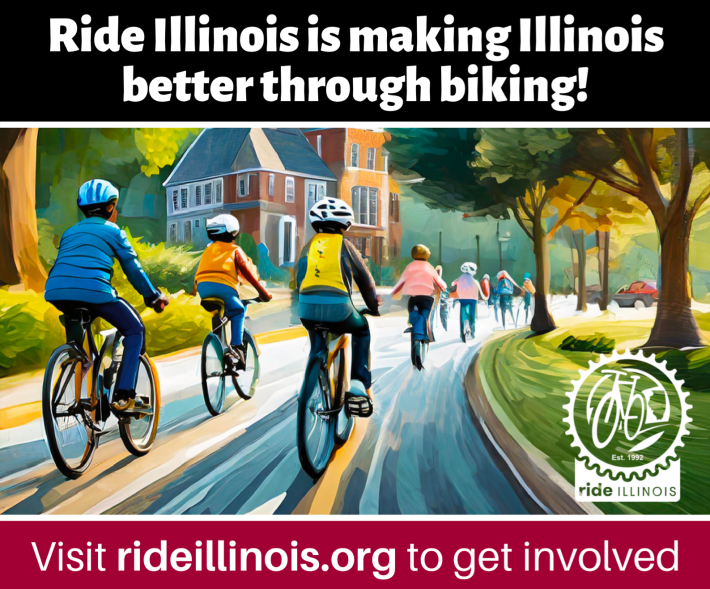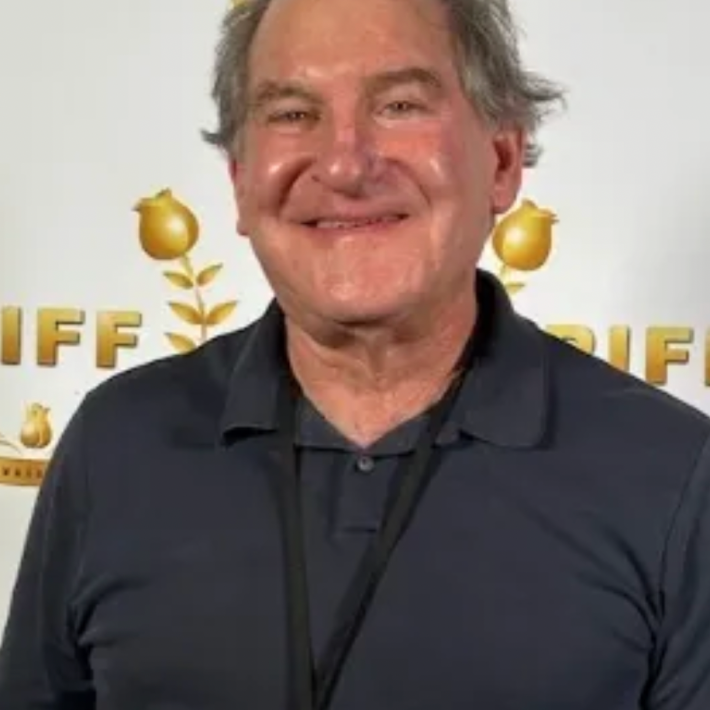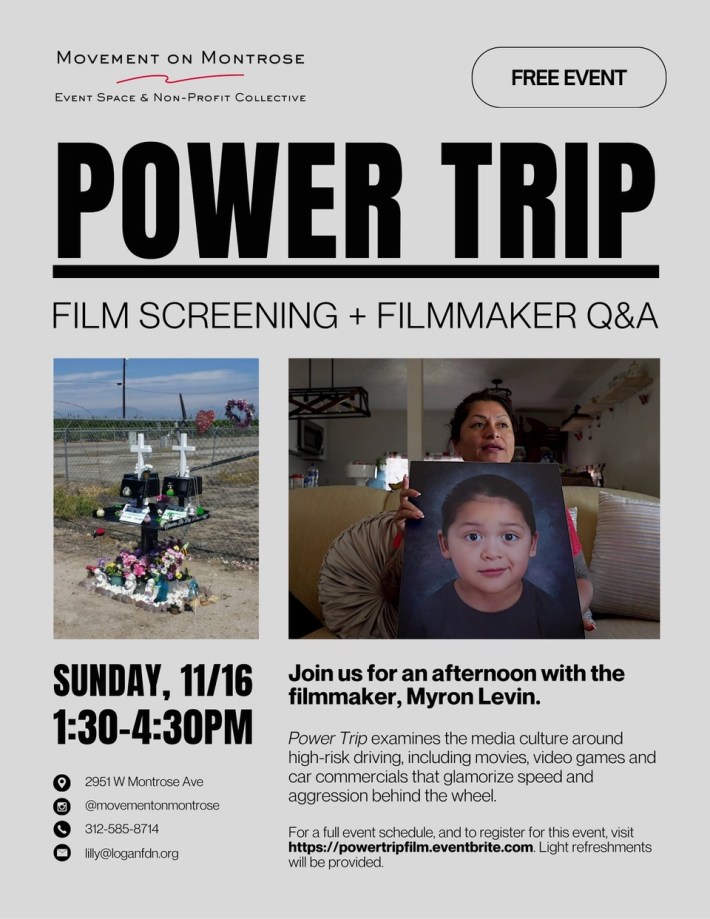
The film "Power Trip," written and directed by Myron Levin, discusses how films, video games, and automobile ads glamorize the kind of high-risk driving that kills people and tears families apart. While the number of traffic deaths is falling in other affluent nations, American crash fatalities rose to over 40,000 a year, with speed a factor in 30 percent of the cases. "The film is dedicated to the memory of crash victims everywhere, to their grieving families, and to those working to end the slaughter on our roads," its website states.

Levin is coming to Chicago for a screening of the film on Sunday, November 16, from 1:30 to 4:30 p.m. at Movement on Montrose, 2951 W. Montrose Ave. in the Irving Park neighborhood. Streetsblog Chicago is cohosting. The showing is free, but you can register here. This is the event schedule:
1:30-2:00 PM: Guest Arrival and Check-in
2:00-3:30 PM: Film Screening
3:30-4:00 PM: Q&A with filmmaker Myron Levin, emceed by Streetsblog Chicago's John Greenfield
For those who would like to bicycle to the screening, John will lead a bike ride to the venue, about eight miles at roughly 10 mph. The ride will meet at the Daley Plaza Picasso, 50 W. Washington St., at noon, departing by 12:30 p.m., and traveling largely on protected bike lanes and the 312 RiverRun trail. Here's a rough draft of the route.

After the Movement on Montrose event, weather permitting, attendees are invited to join us for a free Streetsblog meetup in the outdoor beer garden of Montrose Saloon, next door from the film venue at 2933 W. Montrose Ave., until at least 6 p.m. The bar has offered to light their outdoor fire pit for us. For those who would like to take the 'L' back downtown from the screening or the tavern, the Brown Line's Francisco Station is just three blocks north, and you can bring your bicycle onboard.
Streetsblog Chicago reporter Cameron Bolton recently caught up with Levin to learn more about the movie.
Cameron Bolton: What made you want to make this movie?

Myron Levin: I've been a journalist for 50 years, and I was always drawn to stories about significant problems that were ignored or under-covered, and the toll of traffic deaths and injuries in the United States fit that guideline to a T. I did a lot of stories about unsafe vehicle designs, about distracted driving, from the use of wireless devices and things like this. So I'd long been concerned about the general problem.
And then, maybe just a few years ago, I noticed a couple of things. One, the annual death toll, which had been declining into the early 2010s, suddenly started going up again to over 40,000 a year. And at the same time, I was noticing some car commercials that seemed to glorify speed and high-risk driving. And my first reaction to that was sort of that this seemed kind of flippant or tone-deaf, a little bit because of what was going on with the use of their products. So that interested me.
And then I started wondering, could the depiction of people driving fast and recklessly without any consequences, like tickets, jail, or people dying, could that actually influence the way some people drive? And so I started asking around about it, interviewing people, and also saving some of these commercials, and I came to the conclusion that there was a good story here.
CB: Some people might argue that someone who drives recklessly might have some other issues besides watching too many car commercials or movies. What would you say to that?
ML: Sure, someone might say that this isn't really what does it, that there are other things that would cause people to drive this way. It's certainly an arguable point. And I wouldn't think that this kind of media culture that the film is trying to talk about, is more important than some other things that we know about, like the design of roads and the lack of strong traffic enforcement. Those things are pretty widely understood and discussed, and this is an element that isn't, and so, that's what kind of piqued my interest.

CB: One of the film's subjects is making it so cars can't be driven at obviously unnecessary and lethal speeds like 180 mph. How important do you think is it for people to advocate for that change.
ML: That would be a really important reform. I don't know where you would set the maximum, but there's no excuse for what we have now. In Europe now there is a requirement that new models have at least prominent alarms or visual alerts that you're going too fast. I don't think that, at this point, they're actually compelling automakers to set an absolute limit on how fast the car can go. But they're getting at this earlier than we are in America.
I know some states are trying to apply speed limits to serial reckless drivers. I think there's been state legislation that just passed in a couple of places about that. But anyway, it seems like to me that it's a very good issue – it would really help.
Watch the film in full here.
CB: What's the most important thing people should take away from this movie?
ML: Drivers who kill someone or get themselves killed bear the ultimate responsibility. But we should expect automakers to model the safe and responsible use of their cars and trucks.
Many years ago, people joked about drunk driving: "I was really loaded when I came home from the bowling alley last night." That kind of thing. It took a long period of peer pressure, peer disdain, and enforcement to make people have the attitudes they do now about drunk driving and to have the laws we have.
So car makers should be aware that we're bombarded from an early age with images of people driving like maniacs and getting away with it. And we see more of it on the roads, people who are doing really stupid things, weaving in and out of traffic at very great speeds, and without using turn signals, and things like that. So I hope people are more aware and disdainful about that kind of behavior, making it uncool. And I hope they expect the automakers to set a better example in how they market their cars and trucks.
Learn more about "Power Trip" at the website.
Register for the free screening on Sunday, November 16, here.

Do you appreciate Streetsblog Chicago's paywall-free sustainable transportation reporting and advocacy? We officially ended our 2024-25 fund drive in July, but we still need another $42K+ to keep the (bike) lights on in 2026. We'd appreciate any leads on potential major donors or grants. And if you haven't already this year, please consider making a tax-deductible donation to help us continue publishing next year. Thank you!




